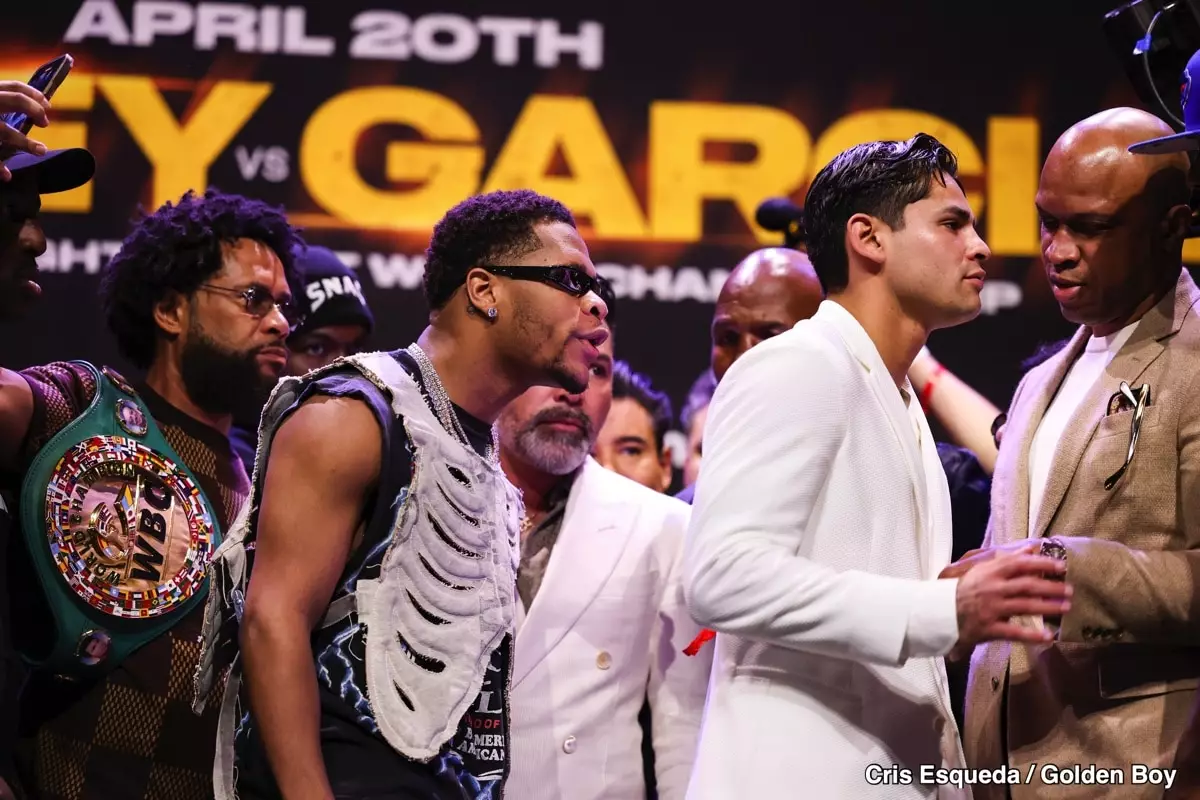In an unexpected twist within the boxing world, Devin Haney has taken the drastic step of initiating a lawsuit against Ryan Garcia following their bout on April 20. This legal action underscores a growing tension in the sport, as the nature of competition is tested not only inside the ring but also in the courts. With allegations that include battery, fraud, and unjust enrichment, Haney’s suit could potentially reshape the public perception of both fighters as well as their careers.
The lawsuit hinges on pivotal claims surrounding García’s performance, ranging from accusations of battery to the more convoluted assertions of fraud. At the core, Haney asserts that he was not only physically assaulted in the form of a defeat within the squared circle but that García also benefited unscrupulously from his actions. This introduces a notion of moral integrity in a realm often fraught with questionable ethics. Haney is reportedly seeking punitive damages, a legal move that underscores the emotional toll and damage to his reputation he believes he sustained from the bout.
With the New York State Athletic Commission’s recent ruling of the fight as a “no-contest,” the vigor of Haney’s claims seems to gain a semblance of legitimacy. García’s failure to meet weight limits and a subsequent positive test for the banned substance Ostarine raise essential questions about the fairness of their matchup. Such controversies only complicate the already intricate relationship between legality and sportsmanship in boxing.
For Haney, this legal battle comes at a tumultuous time in his career. With a pristine record of 31 victories, including 15 by knockout, the fighter has suddenly found himself grappling with substantial challenges. His loss to García not only diminished his status among fans and pundits alike but may have also put him on the sidelines in terms of lucrative future opportunities. The fallout from this defeat, combined with the ongoing litigation, poses a substantial risk to his standing and financial prospects in the sport.
With diminished popularity, Haney faces an uphill battle to reclaim his place amongst boxing’s elite. Fans and analysts question whether his focus on litigation signifies a retreat from an era of competitive spirit, leading many to criticize him for appearing weak. Critics argue that this reliance on courts showcases Haney’s inability to process his defeat, favoring legal recourse over the more traditional route of redemption in the ring through a rematch.
While the lawsuit is certainly a significant step for Haney, the ramifications for both fighters are complex. Loyalty, respect, and competitive spirit are often lauded within the boxing community, but situations like this can fracture those bonds. Questions arise concerning whether García would even consider a rematch, particularly if he perceives that Haney’s actions are fueled by desperation rather than the pursuit of a fair competitive balance.
Furthermore, the financial implications of the lawsuit also loom large. If Haney is to expect considerable compensation from the legal action, the amount must surpass what a rematch would garner—a daunting prospect considering the tumultuous reactions from fans and the ever-changing landscape of boxing promotions. With García facing penalties from the commission, including fines and a suspension, Haney’s decision to pursue legal action may actually obstruct the possibility of a straightforward rematch, ultimately reducing his earning potential.
Reactions from the boxing community have been mixed, with many fans expressing disappointment and frustration over Haney’s legal approach. Instead of rallying for a second chance in the ring, Haney’s move may be perceived as a cry of defeat rather than an assertion of strength. Critics vehemently argue that the missteps taken in the ring during their previous encounter, such as Haney’s reluctance to adapt his strategy, were decisive regardless of Garcia’s alleged wrongdoing.
This growing sentiment may paint Haney as a fighter less adept at confronting struggles directly in the ring, promoting a narrative that complicates his brand and legacy. Such views have the potential to shape future fights and negotiations, illustrating how one failure can lead to an avalanche of consequences in the world of boxing.
While Haney’s lawsuit may appear to be a means of reclaiming authority over a startling defeat, it raises complicated questions about his future in boxing and the larger implications it harbors for the sport as a whole. As battles shift from the ring to the courtroom, the essence of sport—competition, resilience, and drive—risks being overshadowed by legal intricacies.

